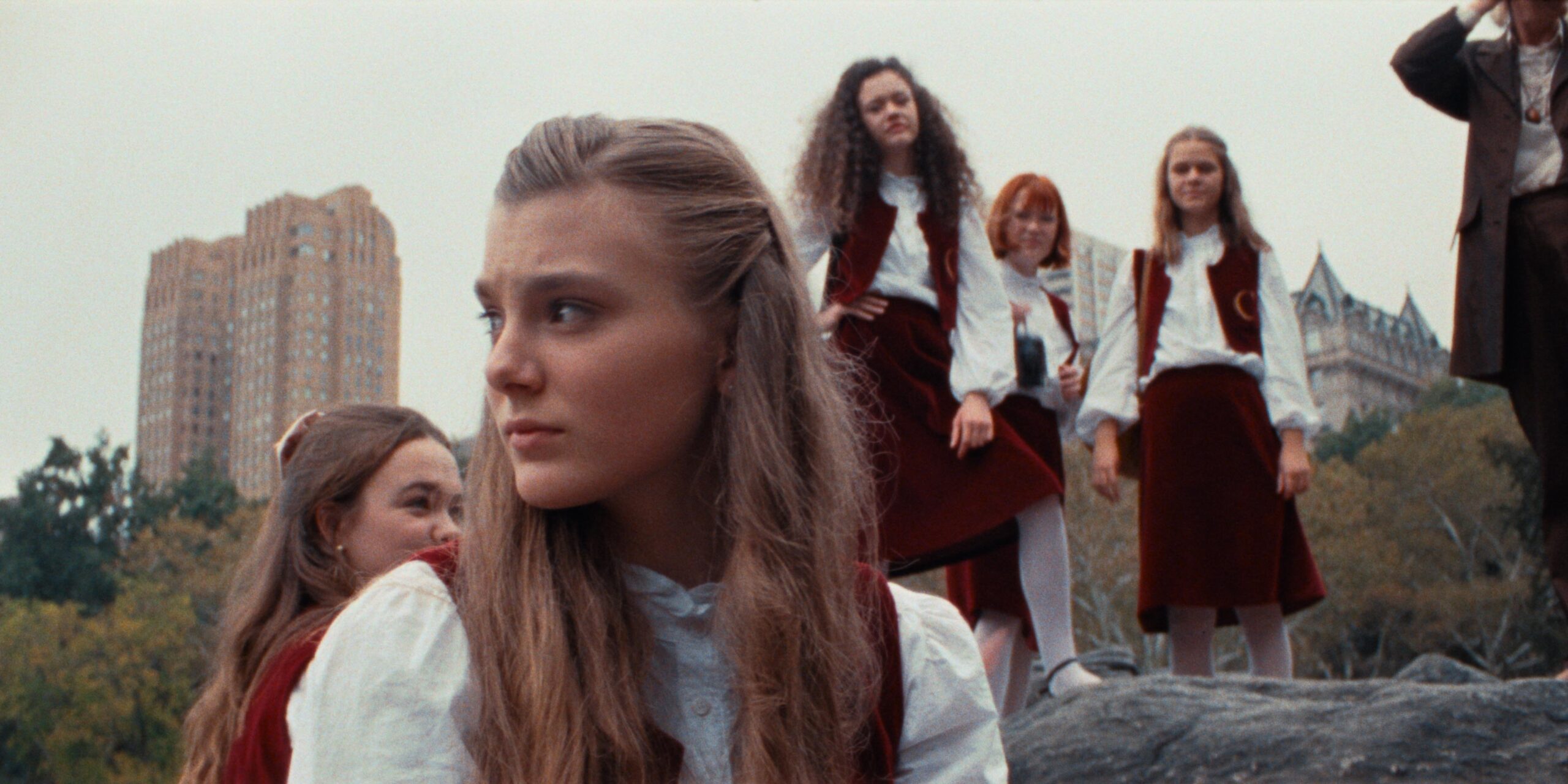Broken Voices
Sbormistr
VERDICT: The insidiousness of abuse is expertly explored in this restrained but devastating loss-of-innocence drama from Ondrej Provaznik.
There is a genuinely crushing moment towards the end of Broken Voices.
Karolina (an exceptional Katerina Falbrova) glances through the window of a hotel room and sees children in the apartment opposite, clued to the television set, watching cartoons. She doesn’t say anything, but the weight of her childhood slipping painfully from her grasp is harrowing. Karolina is the 13-year-old protagonist of Ondrej Provaznik’s Broken Voices, a film centred on an elite section in a Czech all-girl choir famed for their angelic voices and precision harmonies. While making into the lead choir is a dizzying ambition, it is one with its own politics and a demanding, predatory overseer. The film premiered at Karlovy Vary, where Falbrova got a special mention from the Crystal Globe jury, and now screens as part of Oldenburg Film Festival.
The plot is set in the 1990s and loosely based on the true story of Bambini di Praga, a Czech children’s choir whose choirmaster, Bohumil Kulínský was arrested in 2004 for numerous acts of sexual abuse of minors. This film is not an explicit adaptation of that story, but its shadow looms large. Instead of retelling it directly, Broken Voices explores the implications of that story, poking at the different forms of manipulation, rivalry and coercion that festers under rule of an abuser. While Karolina’s desire to be part of the top set with her older sister, the 15-year-old Lucia (Maya Kintera), is uncomplicated in its wonder, the reactions of other girl – including Lucie – and the inappropriate attentions of the choirmaster, Macha Vitek (Juraj Loj) are far from childlike.
The narrative first sees Karolina longing to be part of the top choir, particularly when she hears that an international tour to the United States is on the horizon. Lucie gets to stay out late at choir parties with her friends and seems to have a familiar relationship with Macha Vitek that Karolina longs for. When a chance arises and both sisters are invited to a mountaintop retreat for intensive practice – much like the monastery in this year’s other girl-choir-coming-of-ager, Little Trouble Girls – Karolina must start to understand the adult world she’s becoming a part of.
One of the most impressive things about what Provaznik has achieved here is the film’s ability to retain the Karolina’s wide-eyed innocence for so long, even after Vitek’s behaviours and intentions become crystal clear. After lingering looks and Vitek encouraging Karolina to join him in the sauna late at night, it would be easy – and perhaps simple – for the tone of the film to change completely. Instead, we don’t just see but feel Karolina’s elation when things continue to go her way with the choir. We wrestle with the dissonance of knowing what is going to happen, but also revel in her happiness at hers and her sister’s success. It is in impressive set of circumstances in which to balance such things and Provaznik is able to have us root for Karolina and Lucie’s success even when we are terrified of its cost.
This is helped by the performances, which are excellent across the board. Loj does a great job as Vitek, making him charismatic and appealing in a way that makes his seduction of the girls all the more troubling. Maya Kintera’s Lucie is perhaps the most challenging of the roles, as she is the character worldly wise enough to know what is going on and torn apart by it. She is both jealous of her sister, who in certain moments she treats awfully, and protective. However, the real star is of course Katerina Falbrova who anchors the whole film and whose wide-eyed wonder, and glassy-eyed despair, are the most powerful elements of this quiet, shattering drama.
Director, screenplay: Ondrej Provaznik
Cast: Katerina Falbrova, Juraj Loj, Maya Kintera, Zuzana Sulajova, Marek Cisovsky, Ivana Wojtylova, Anna Michalcova, Anezka Novotna, Marketa Kuhnova
Producers: Jiri Konecny, Ivan Ostrochovsky
Cinematography: Lukas Milota
Editing: Anna Johnson Ryndova
Sound: Juraj Mravec, Frantisek Sec
Music: Pjoni, Aid Kid
Art direction: Irena Hradecka
Production companies: Endorfilm (Czechia)
Venue: Oldenburg Film Festival (Shorts)
In Czech
104 minutes


